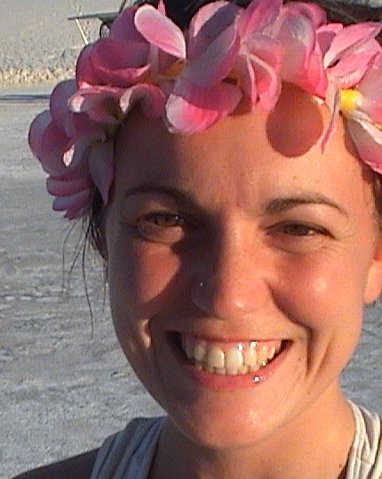Habiba

Habiba is an expression and a sound and not containable in a written summary. Habiba is a woman overflowing with love and compassion and jokes and very very powerful healing. Habiba is at once both mystical and grandmother-esque. She is the ultimate babushka. Habiba is clear, she is a channel and a vessel of light and so there is not chit chatter and time is truly intentional. Habiba is a large woman who wears long velvet mumus that are embroidered with silver and gold string. She has two gold necklaces: Madonna and the Yin Yang symbol, emblematic of her understanding that the divine is one—Allah, Muhammad, Jesus, Adonai, Buddha, Avalokiteshvara, all one. Habiba has a magnetic bracelet that helps her mind and body be aligned. She has two big gold rings with large, shimmering stones, and she has hair that is black like an Arabian horse’s mane. She paints her face with thick black eyeliner and crimson lip liner and when she laughs I think the whole world is going to quiver with joy. Her light tickles even the most shaded areas. Every day Habiba carries a mala, or rosary, and she has a variety of different strings of beads. Many are evil eye protectors, and one, my favorite, has white beads with black Arabic lettering describing different Muslim prayers on each bead. I ask Habiba if women are ever whirling dervishes, because I love to spin and dream of learning the art of Sufi whirling. Habiba tells me that women only dance in this way when a child dies; they dance so that the spirit of the child can go up to the sky safely. Habiba says, “The important thing is not how to use the word or silence, but the way we use the word or silence.” I can feel Habiba and I communicating even in the silence. To do her healing work, Habiba whistles on people’s heads, uses cupping on the back, hypnotizes, and much more. Habiba usually sees up to 100 people a day at her home for healing. Habiba says that people come for the healing and leave her with a greater sense of faith and love for the divine. We see a documentary that Costanzo made about Habiba’s work.


0 Comments:
Post a Comment
<< Home